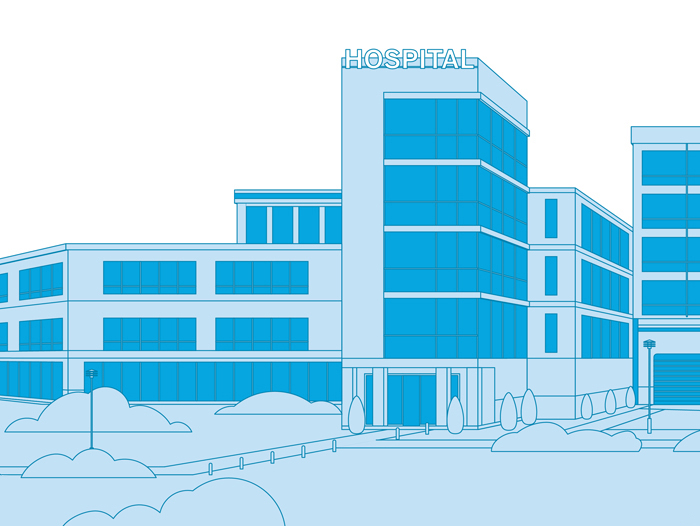Auto logout in seconds.
Continue LogoutEditor's note: This popular story from the Daily Briefing's archives was republished on Feb. 7, 2025.
Healthy microbes are essential for proper digestion, immune function, and intestinal health. And while there isn't a large body of research on how alcohol affects the gut, existing research suggests drinking may hurt the gut microbiome, Alice Callahan reports for the New York Times.
How heavy drinking can affect your microbiome
According to Cynthia Hsu, a gastroenterologist at the University of California, San Diego, much of the research on the effect of alcohol on the gut microbiome is focused on people who drink regularly and heavily.
A few studies have found that those with alcohol use disorder typically have an imbalance of "good" and "bad" bacteria in their guts, a condition called dysbiosis, which is often associated with greater inflammation and disease compared to having a healthy microbiome, Hsu said.
And according to Lorenzo Leggio, a physician-scientist who studies alcohol use and addiction at NIH, heavy drinkers with dysbiosis can also have "leakier" intestinal linings.
A healthy gut lining provides a barrier between the interior of the intestine and the rest of the body, Leggio said, and Hsu noted that when the gut lining breaks down, bacteria and toxins can enter the bloodstream and flow to the liver, which can cause liver inflammation and damage.
Other research has suggested that an unhealthy gut may contribute to cravings for alcohol, according to Jasmohan Bajaj, a hepatologist at Virginia Commonwealth University and the Richmond V.A. Medical Center.
In a study from 2023, researchers looked at the microbiomes of 71 people between the ages of 18 and 25 who didn't have alcohol use disorder. Those who reported more frequent binge drinking — defined as four or more drinks within around two hours for women or five or more drinks for men — had microbiome changes correlated with greater cravings for alcohol.
However, Callahan notes that none of these studies have proven that alcohol causes dysbiosis in humans, though the link is clearer in animal studies.
How moderate drinking affects your microbiome
According to Jennifer Barb, a clinical bioinformatics scientist at NIH, there's not much research on how much moderate drinking — defined by federal guidelines as no more than two drinks a day for men or one drink a day for women — affects the gut microbiome.
Some research has found that, compared to those who don't drink at all, those who drink at low-to-moderate levels had more diverse gut microbiomes, which is typically associated with having a healthy gut. According to Barb, it's possible this is caused by other diet or lifestyle factors, or it's possible that something in alcoholic drinks could benefit the microbiome, though it's unlikely to be ethanol.
Another study from 2020 looked at 916 women in Britain who drank two or fewer drinks per day and found that those who drank red wine, and to a lesser extent white wine, had greater diversity in their gut microbiome than those who didn't. The researchers did not find a similar link with beer or liquor and hypothesized that polyphenols, which are compounds found in grape skins and are in high concentration in red wines, could explain the results.
However, John Cryan, a neuroscientist who studies the microbiome at University College Cork in Ireland, noted that alcohol isn't the only place to get polyphenols, as they're also present in grapes and most other fruits and vegetables as well as herbs, coffee, and tea.
Consuming a variety of plant-based foods and fermented foods like yogurt, kombucha, and kimchi can also improve your microbiome diversity, Callahan reports.
Will cutting back on drinking improve your gut health?
Some research has looked at the microbiomes of people who were treated for alcohol use disorder and found that, within two to three weeks after they stopped drinking, their microbes showed signs of recovery, according to Barb.
However, Barb also noted that people treated for alcohol use disorder also start eating healthier and sleeping better, which can also improve gut health.
It's unclear how or if quitting drinking or cutting back on it could influence the microbiome in a moderate drinker, Leggio said. However, alcohol can cause acid reflux, stomach lining inflammation, and gastrointestinal bleeding, he noted, and it can increase your risk of different types of cancer, including esophagus, colon, and rectum.
As a result, Leggio said "there is no question whatsoever" that drinking less is worthwhile to improve your health. (Callahan, New York Times, 2/1)
The beverage aisle in your local grocery store contains a slew of unhealthy options — but some drinks can actually help improve your health and well-being. Writing for U.S. News & World Report, Julie Upton and Ruben Castaneda outline the best drinks for gut health, brain health, relaxation, and hydration.
Don't miss out on the latest Advisory Board insights
Create your free account to access 1 resource, including the latest research and webinars.
Want access without creating an account?
You have 1 free members-only resource remaining this month.
1 free members-only resources remaining
1 free members-only resources remaining
You've reached your limit of free insights
Become a member to access all of Advisory Board's resources, events, and experts
Never miss out on the latest innovative health care content tailored to you.
Benefits include:
You've reached your limit of free insights
Become a member to access all of Advisory Board's resources, events, and experts
Never miss out on the latest innovative health care content tailored to you.
Benefits include:
This content is available through your Curated Research partnership with Advisory Board. Click on ‘view this resource’ to read the full piece
Email ask@advisory.com to learn more
Click on ‘Become a Member’ to learn about the benefits of a Full-Access partnership with Advisory Board
Never miss out on the latest innovative health care content tailored to you.
Benefits Include:
This is for members only. Learn more.
Click on ‘Become a Member’ to learn about the benefits of a Full-Access partnership with Advisory Board
Never miss out on the latest innovative health care content tailored to you.



